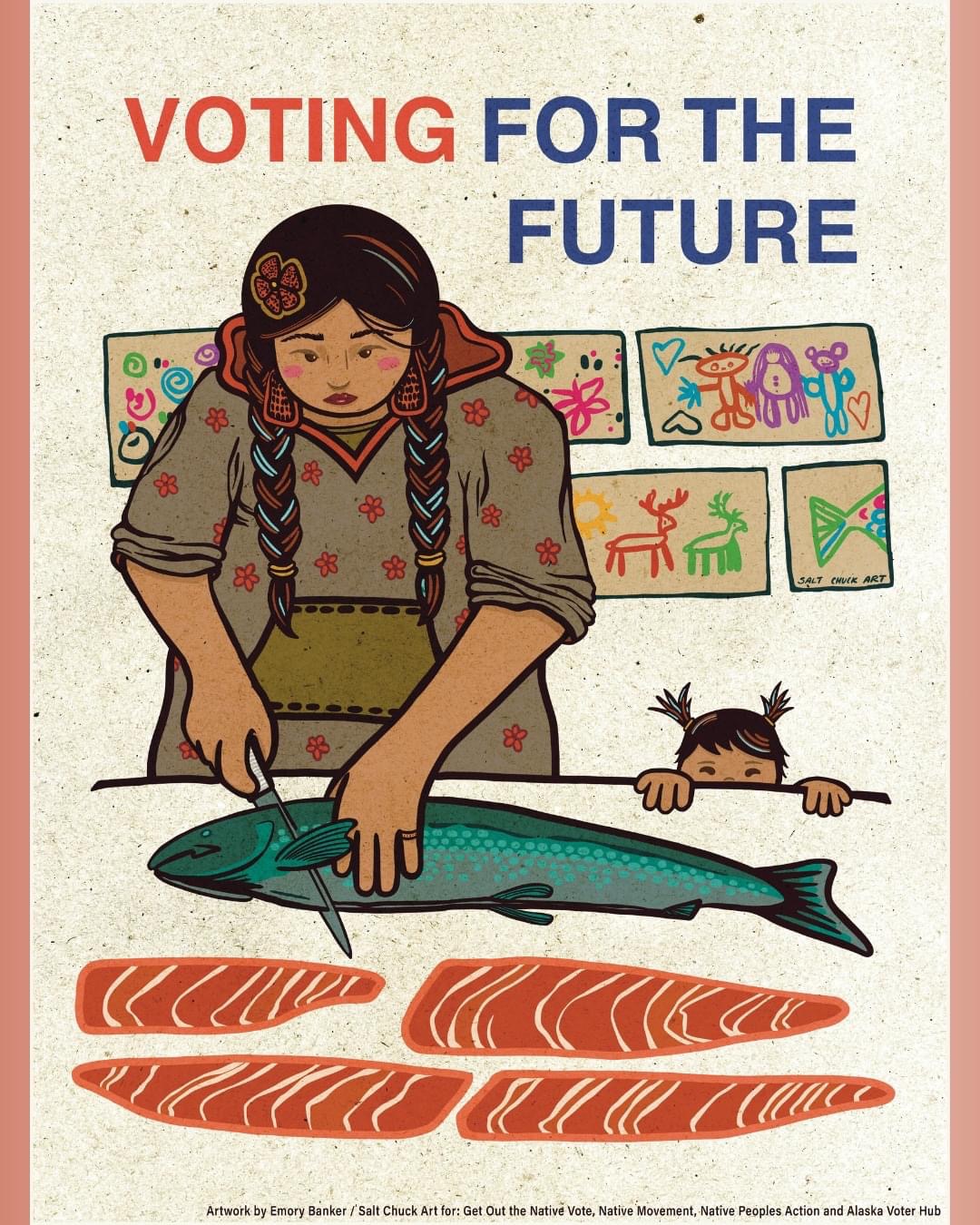
- Details
- By Native News Online Staff
Native Vote. In honor of the 60th anniversary of the Voting Rights Act (VRA) on August 6, the Alaska Federation of Natives (AFN), First Alaskans Institute (FAI), and Cook Inlet Tribal Council (CITC) are proud to announce a new Memorandum of Understanding (MOU) to expand and strengthen the Get Out the Native Vote (GOTNV) initiative across Alaska.
The VRA, signed into law in 1965, was a landmark piece of civil rights legislation designed to eliminate discriminatory practices that suppressed communities of color, including Alaska Natives. Before its passage, Alaska Native peoples faced systemic barriers to voting, such as literacy tests and intimidation tactics. The VRA marked a turning point in the fight for equal access to the ballot box.
In Alaska, the impact of the VRA has been profound. Empowered by its protections and through determined advocacy and legal action, Alaska Native communities have worked to dismantle barriers to voting. This has led to increased civic participation, more Native candidates running for office, and stronger representation in government and policy-making.
Founded on the belief that voting is a cornerstone of a healthy democracy, GOTNV has worked to register voters, remove access barriers, and educate communities through nonpartisan outreach. Originally operating under the ANCSA Regional Association, GOTNV became a CITC affiliate in 2020 and formally joined CITC as a program in 2024.
Through this new partnership, AFN, FAI, and CITC will combine their expertise to develop a unified strategy that encourages civic engagement and ensures Native voices are heard at every level of government. GOTNV will continue to offer culturally relevant outreach that supports Native communities in taking ownership of the democratic process and shaping the future.
As we commemorate 60 years of the Voting Rights Act, AFN, FAI, and CITC reaffirm their shared commitment to justice, equity, and representation. Together, through GOTNV, they honor the legacy of those who fought for voting rights and ensure that Alaska Native people lead the way in securing a better future for the next generations.
More Stories Like This
Native News Weekly (August 25, 2024): D.C. BriefsMonday Morning (March 2, 2026): Articles You May Have Missed This Past Weekend
Native News Weekly (March 1, 2026): D.C. Briefs
Scope Narrowed, Report Withheld: Questions Mount Over Michigan Boarding School Study
Zuni Youth Enrichment Project Announces Family Engagement Night and Spring Break Youth Programming
Help us defend tribal sovereignty.
At Native News Online, our mission is rooted in telling the stories that strengthen sovereignty and uplift Indigenous voices — not just at year’s end, but every single day.
Because of your generosity last year, we were able to keep our reporters on the ground in tribal communities, at national gatherings and in the halls of Congress — covering the issues that matter most to Indian Country: sovereignty, culture, education, health and economic opportunity.
That support sustained us through a tough year in 2025. Now, as we look to the year ahead, we need your help right now to ensure warrior journalism remains strong — reporting that defends tribal sovereignty, amplifies Native truth, and holds power accountable.
 The stakes couldn't be higher. Your support keeps Native voices heard, Native stories told and Native sovereignty defended.
The stakes couldn't be higher. Your support keeps Native voices heard, Native stories told and Native sovereignty defended.
Stand with Warrior Journalism today.
Levi Rickert (Potawatomi), Editor & Publisher


